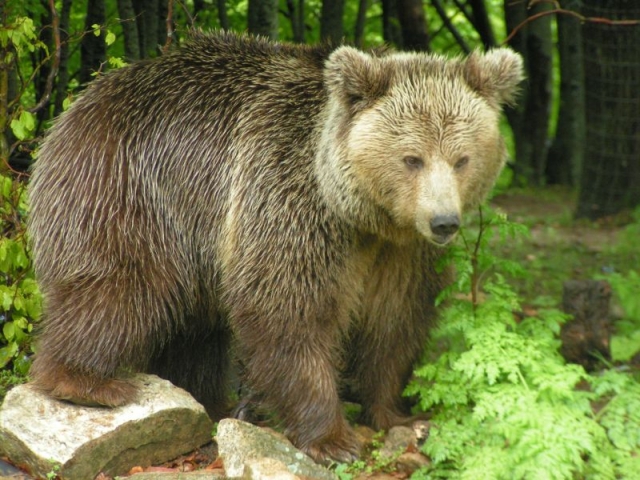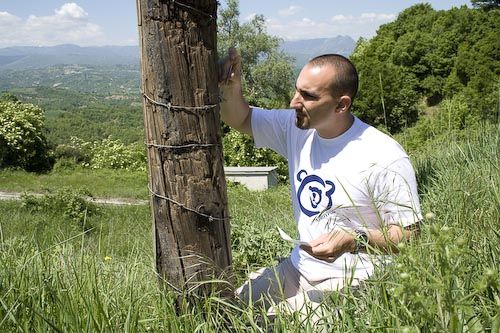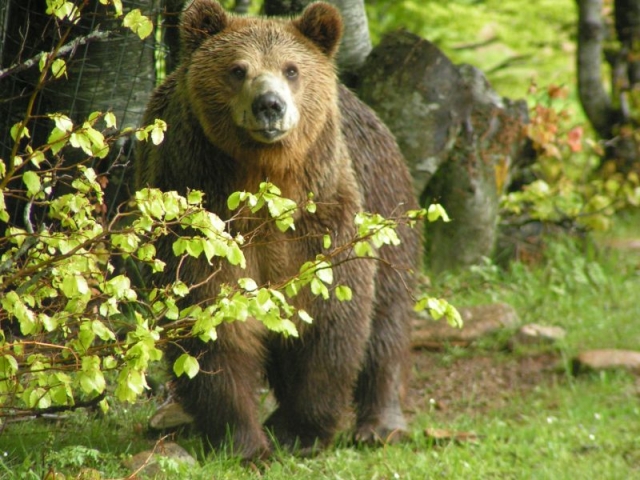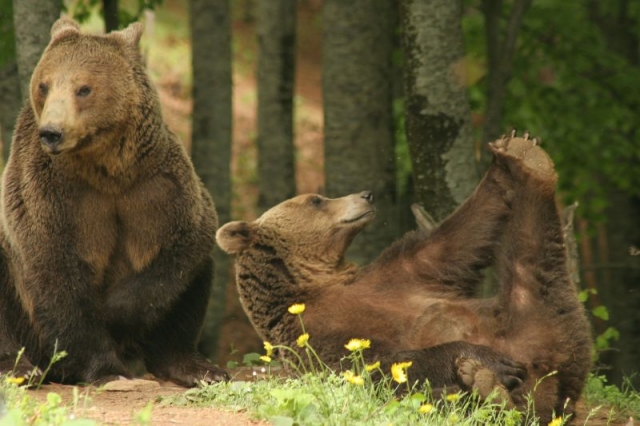Photo: arcturos.gr
Anastasia Balezdrova
A few days ago, a car dragged and killed a bear cub in west Greece. The accident happened on one of the vertical axes of the Egnatia highway and was the seventh this year.
Members of the environmental organization Arcturos, who had arrived at the scene, found that the bear cub was just a few months old and that it had died from the numerous wounds all over its body, which were due to the clash with a passing car.
GRReporter contacted the scientific coordinator of the organization Arcturos, Alexandros Karamanlidis, who presented the possible causes of the frequent accidents.
"This is the seventh accident so far this year. But it is the sixth in which the victim was a bear cub.

The problem with killed bear cubs is so serious for the first time this year. This is particularly worrying. So far, we have no explanation, but we have been considering different versions. One of the most likely reasons is that the mother usually goes ahead when the bear cubs try to cross the road. Perhaps it has a more developed ability to sense the approaching cars. It goes away in time and crosses the road. Some of the cubs, however, which have no sense of that danger anyway, fail to get far enough to avoid the clash."
As Alexandros pointed out, the six bear cubs had been killed on one of the vertical axes of the Egnatia highway. "This is the road that connects the cities of Siatista and Krystallopigi. The cars are moving very fast and a collision with a bear can be particularly dangerous for the drivers as well as for their companions. "

Alexandros Karamanlidis is collecting hairs of a bear for a genetic analysis
Environmentalists say the number of bears in Greece is around 400. "We cannot say precisely how the accidents will affect this year's population. There have been similar accidents in past years too but they were fewer in number. We are closely following the phenomenon and we will continue to do so in the coming years." Arcturos states that in order to be able to determine the consequences of the loss of so many young animals they should collect and compare data for a long period of time.
One of the main objectives of the organization is to monitor the effects of the construction of major roads on wildlife and bears in particular. "We started some years ago with the start of the construction of the Egnatia highway that connects west and east Greece. Subways, tunnels and fencing were made in one of the key places near Grevena."

However, nature is unpredictable and definitely, it does not comply with the plans of men. "There were not so many bears in the region when the road was being constructed and we had no problems. But with the increase in the number of bears, their habitat and spreading in the country, problems have appeared in places where we did not expect."
The Arcturos organization is directly involved in the construction of all major projects that are close to the bear habitat. "The organization has been conducting research at the place of the last accident for three years now. One of the largest mobile operators in Greece funds the research. We have been studying the movement of bears and what measures should be taken in order for the bears to avoid the roads so that we will not face such problems. What we have seen so far is that the best solution is erecting a suitable fence."
The relevant authorities and the concessionaire of the highway have already chosen the company that will put up the fence. It is expected to be ready by the end of the year in order to prevent further deaths among the bears and danger to travellers on the road.
